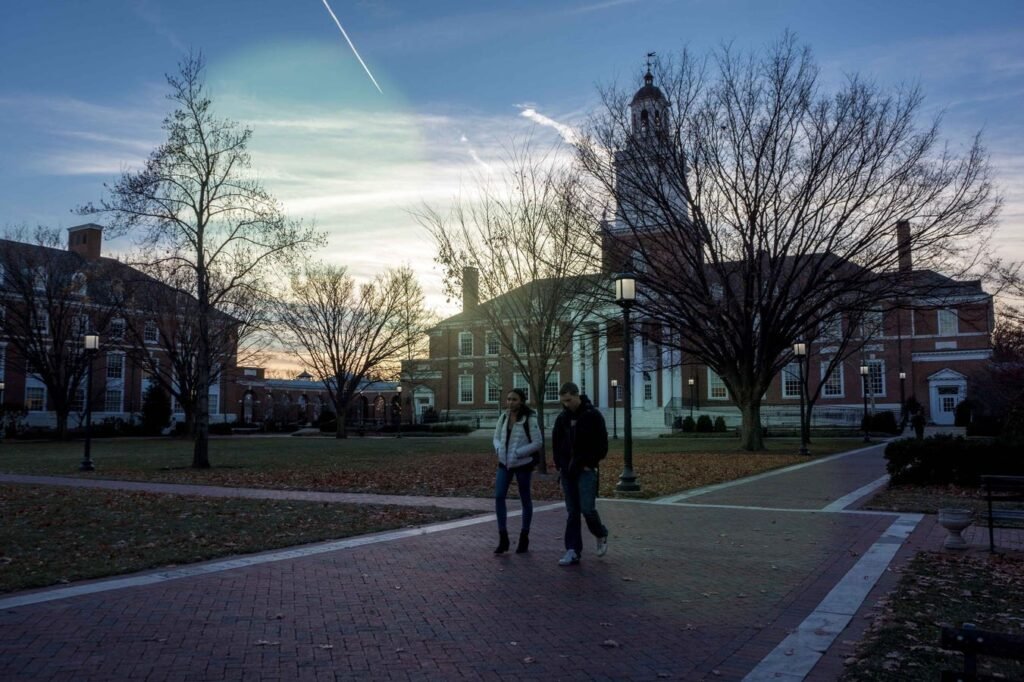Two students walk on a brick path in front of Gilman Hall on the Keyser Quadrangle of the Homewood … [+]
The recent wave of layoffs affecting healthcare workers is now reaching some of the most prestigious institutions in the nation. Johns Hopkins University is facing the elimination of over 2,000 jobs due to cuts in USAID funding, as reported by NBC news. The workforce reduction will impact 1,975 positions internationally and 247 within the U.S., with more than 100 employees facing furloughs.
Many of the affected employees are associated with the Hopkins Bloomberg School of Public Health, the medical school, and affiliated nonprofit organizations. The implications of these layoffs are substantial and will have a detrimental effect on public health and the welfare of Americans.
One of the programs directly impacted by the cuts at Johns Hopkins is Accelerate, a program in India focused on HIV detection and prevention. Since its establishment in 2019, Accelerate has played a crucial role in testing nearly 120,000 individuals for HIV, diagnosing 20,000 new cases, and providing medication to approximately 8,000 children with HIV.
The reduction in program resources will result in fewer children receiving HIV treatment, lower rates of HIV diagnosis in India, and increased suffering among the population. While the consequences may not be immediate, the long-term impact will likely include reduced access to essential medications, weakened immune systems, and heightened susceptibility to various infections.
Dr. Sunil Solomon, an epidemiologist involved with Accelerate, expressed concerns about the potential loss of lives resulting from the program cuts.
Several other critical public health initiatives will also be significantly impacted. Programs facing suspension include a tuberculosis research initiative and a clinical trial in Bangladesh aimed at combating cholera and other diarrheal diseases. The pause in these initiatives increases the risk of disease transmission, posing a global health threat that extends beyond borders.
Johns Hopkins has been a key player in responding to global health crises, including infectious disease outbreaks. The downsizing of its workforce will compromise the institution’s ability to rapidly respond to health emergencies, conduct essential research, and maintain effective surveillance systems necessary for managing future threats like bird flu and measles.
In addition to the recent layoffs, many institutions in the U.S. are grappling with significant funding challenges. The Trump administration’s proposal to limit National Institute of Health research grants by capping indirect costs at 15% could result in substantial funding losses for institutions such as Johns Hopkins. While this policy is under legal scrutiny, the future of federal research funding remains uncertain.
The reduction in federal funding and workforce layoffs at esteemed institutions undermines academic independence and jeopardizes public research integrity. Critical health initiatives should remain immune to political influence. Universities should not be forced to choose between sustaining lifesaving programs and funding essential public health positions.
These actions establish a concerning precedent that threatens public health, research, and humanitarian efforts. The U.S. has traditionally led in global health initiatives, and it must continue to do so to safeguard the well-being of vulnerable populations worldwide.


